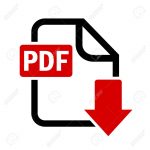
Attached for your review and information are two self-explanatory communications sent byMHARRto HUD on July 27, 2017 regarding the HUD manufactured housing program and, specifically, the re-assignment and replacement of the current program Administrator, Pamela Danner. These communications were sent to Ms. Maren Kasper, the White House liaison to HUD, questioning Ms. Danner’s latest abusive actions and to Ms. Nandini Rao, HUD Associate Deputy Assistant Secretary for the Office of Risk Management and Regulatory Affairs, strongly rebutting an earlier attempt by her to advance Ms. Danner’s retention as program administrator.
As these letters and otherMHARRcommunications since President Trump’s inauguration clearly indicate, the question for the industry is no longer whether the current program Administrator should remain or not. Her performance over the course of nearly four years, as detailed byMHARRand distributed to the industry at every step, makes this a foregone conclusion.
The issue, rather, is whether the industry will continue to simply accept discriminatory treatment and abuse at the hands of HUD officials at a time when the political climate in the nation’s capital has changed dramatically for both the future prosperity of the industry and for the reform of the industry’s outdated, arcane and unnecessarily costly federal program. If the current administrator remains, however, the industry faces the prospect of being left out of the positive results that other industries and businesses (andtheirconsumers) will reap as the result of President Trump’s regulatory reform agenda.
WhileMHARR, since the inauguration of President Trump has publicly and unequivocally called for the re-assignment and replacement of the current program administrator by a qualified appointee in accordance with applicable law, the Manufactured Housing Institute (MHI) has been publicly silent on this matter, thus, once again, leaving the battle to achieve this goal toMHARRand its allies within the industry and in Washington, D.C.
AlthoughMHARRhas never made a habit of imposing on state associations for their assistance unless essential and necessary (such as assistance in the 1990s to enact the 2000 reform law), we are now at a point where your participation and assistance in achieving this necessary change becomes imperative. Furthermore,MHARR’s assessment and analysis of Ms. Danner’s most recent actions with extremely negative impacts for the industry’s post-production sector – specifically retailers and communities (e.g., on-site completion and installation regulation) – makes your involvement and participation in this effort all the more critical.
Therefore, we would appreciate it if you would review these — and other recentMHARRcommunications — and we will contact each of you individually to discuss this matter further.
Thank you.





